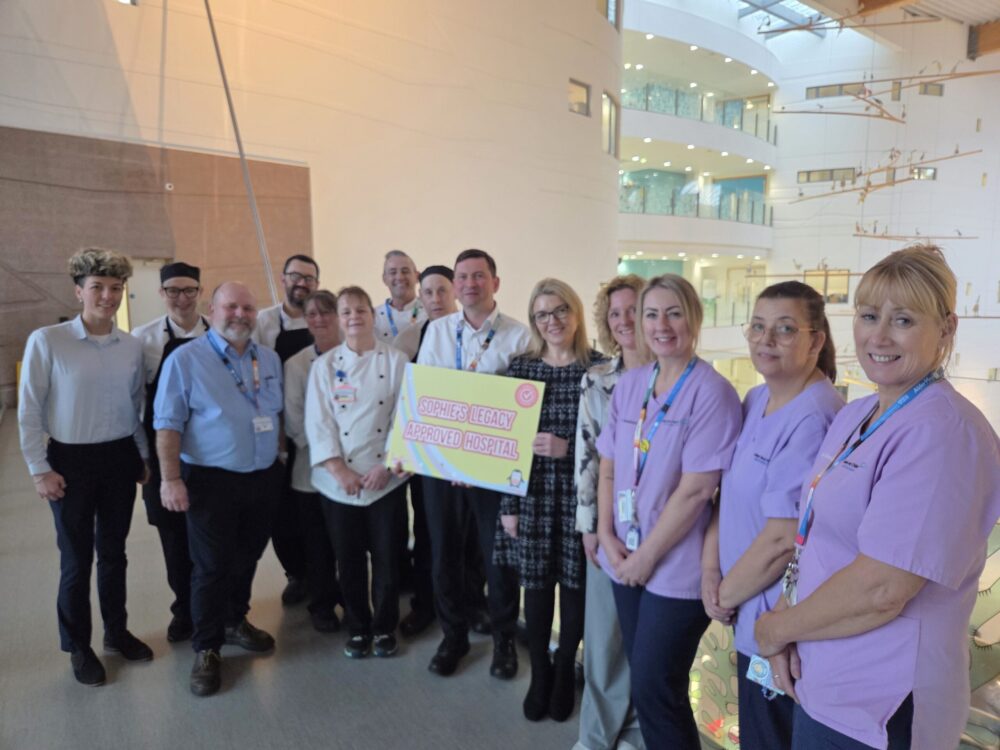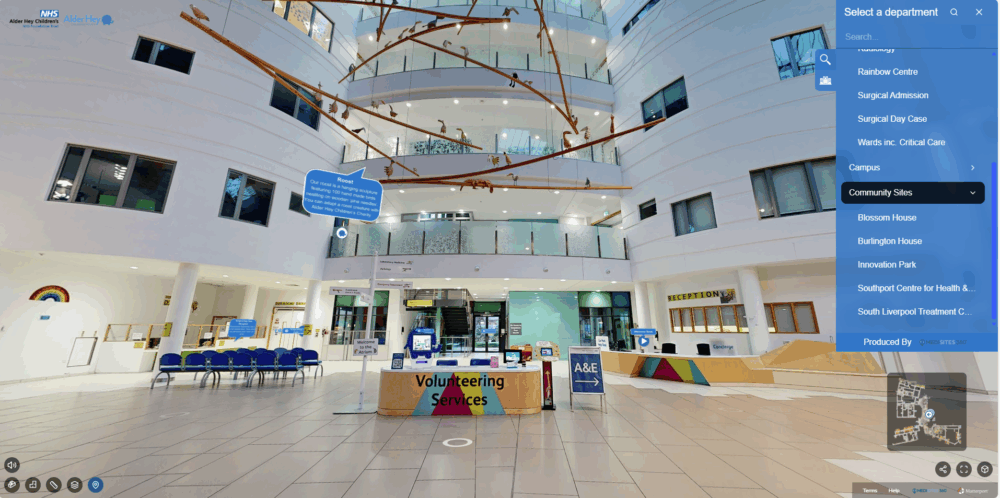
NHS
Two local women are urging others to attend their smear test
3 years ago

Two women from the North West who say routine cervical screening saved their lives are urging others to attend their smear test appointments when invited.
Mum of two Sophie Banawich, 30, from Kirkby, and Sarah Waters, 31, from Prescott, have shared their stories to help raise awareness of the importance of cervical screening during Cervical Cancer Prevention Week (23-29 January), the annual campaign organised by the cervical cancer charity Jo’s Trust.
Sophie, who had no symptoms, but was diagnosed with stage 1 cervical cancer in July 2022 after a routine smear test, says that had she not had that one tiny swab, her story could be very different.
After her first smear test when she was 25 returned abnormal cells, Sophie, had routine yearly smears at Liverpool Women’s Hospital and in February 2022, more abnormal cells were detected and Sophie underwent a procedure to remove them. A follow-up smear following surgery found further abnormal cells, and so Sophie went through the procedure again.
She said: “I then got a call back, and I just knew something wasn’t right. They said they had good news and bad news, I had cervical cancer, but they were confident that the procedure had removed it all.
“I instantly panicked and asked for a hysterectomy, I had two babies Cooper who is now 4, and Nella, 1, and knew I didn’t want any more children. But my brilliant consultant at Liverpool Women’s, Sophie Lace, made me feel so calm and explained everything clearly to me, that I didn’t need one. A hysterectomy is major surgery and I’m still very young, but it can still be an option should my smear in March this year return any abnormal cells.”
“I feel lucky, because Sophie Lace said that had I not gone for my smear when I did, we could have been looking at a completely different outcome and told me to shout it from the rooftops that a smear saved my life, so that’s what I’m doing.
“Go for your cervical screening appointment, it doesn’t hurt, it’s a little embarrassing, but nothing that those doing the procedure have never seen before. It saved my life, and it could save yours.”
Sophie has shared her story on social media encouraging others to go for their cervical screening appointment and has had tens of thousands of likes and shares in response. She added: “I was so shocked at the response, I’ve had so many people, young and old messaging me since saying ‘your post has made me ring my GP and book my smear’.
Cervical screening (also referred to as a smear test) which looks for the human papilloma virus (HPV), is offered to all women and people with a cervix aged 25 to 64, with first appointments offered shortly after their 25th birthday. Smear tests are usually carried out at the GP surgery by a female nurse.

Despite the potentially life-saving benefits of cervical screening, fewer than 7 in 10 people in the North West who were eligible for cervical screening attended their appointments in the year to June 2022.
Sarah Waters, 31, from Prescot, who had no symptoms but was diagnosed with cervical cancer following a smear test, has warned people to not put their cervical screening off, and says a few uncomfortable seconds could save your life.
Since her diagnosis in April last year, Sarah has undergone a full hysterectomy and weeks of chemotherapy and radiotherapy and is now determined to raise awareness of the importance of cervical screening.
She said: “Often online it says that cervical cancer is slow growing, and can take up to a decade to develop. However, it hasn’t been that way in my case, as it is the fast growing type. So even if you have no symptoms or your last smear was normal, it doesn’t mean that your next one will be. Even if you don’t have cancer, if a screening has picked up any abnormalities, it gives the medical experts the chance to treat it before it develops into cancer.” (You can read more about Sarah’s story below).
Cervical cancer can be found anywhere in the cervix, which is the opening between the vagina and the womb, and part of the reproductive system. Almost all cervical cancers are caused by HPV and this is what cervical screening tests for – if your cells are shown to be abnormal, it is easily treatable, without ever developing into cancer.
Symptoms of cervical cancer can include:
- pain in your lower back, between your hip bones (pelvis), or in your lower tummy
- vaginal bleeding that’s unusual for you – including bleeding during or after sex, between your periods or after the menopause, or having heavier periods than usual
- pain when intimate with a partner
However, you don’t need to be experiencing any symptoms to have a cervical screening test. Screening is about preventing cancer and stopping it in its tracks.
Helen Dickinson, Deputy Head of Public Health for NHS England – North West said:
“Cervical screening is so important, and it is one of the best ways that you can protect yourself from cervical cancer.
“Routine cervical screening is all about prevention, so if there are any changes or abnormalities, we can monitor and treat them, before they ever turn into cancer.
“Please don’t ignore your invite for cervical screening. We recognise that it can be uncomfortable or embarrassing, and that you have busy lives, but everything will be done to make your appointment as comfortable and convenient as possible.”









 Subscribe
Subscribe Follow Us
Follow Us Follow Us
Follow Us Follow Us
Follow Us Follow Us
Follow Us Follow Us
Follow Us











